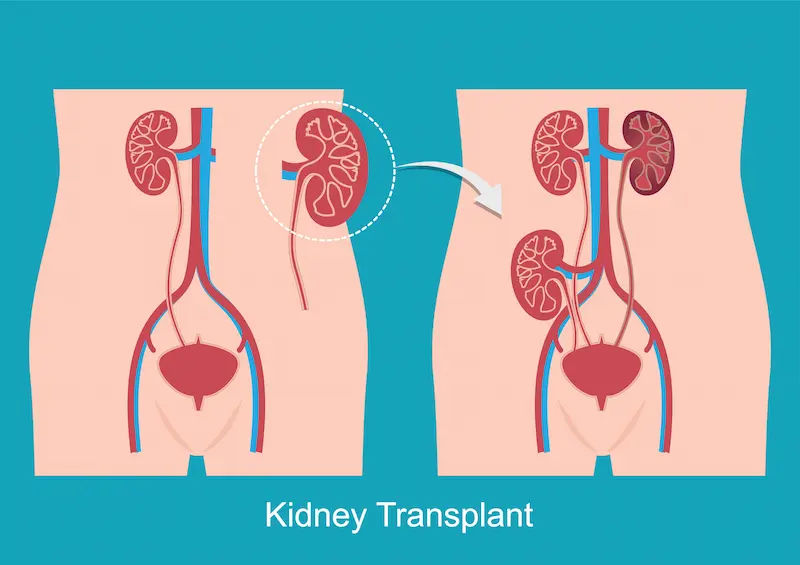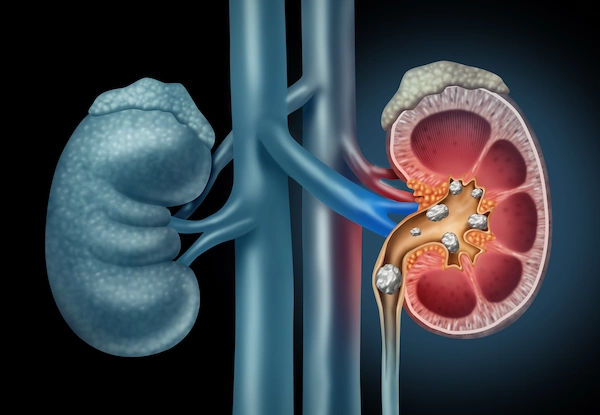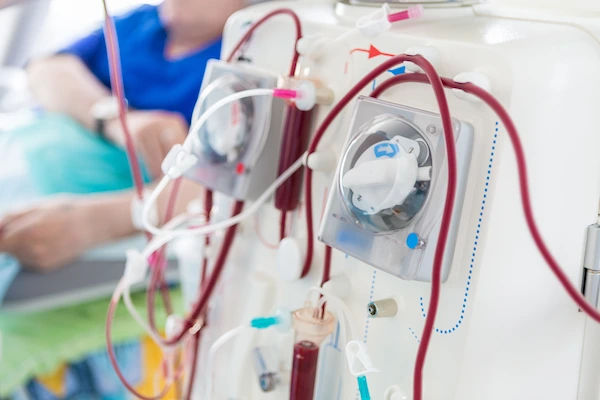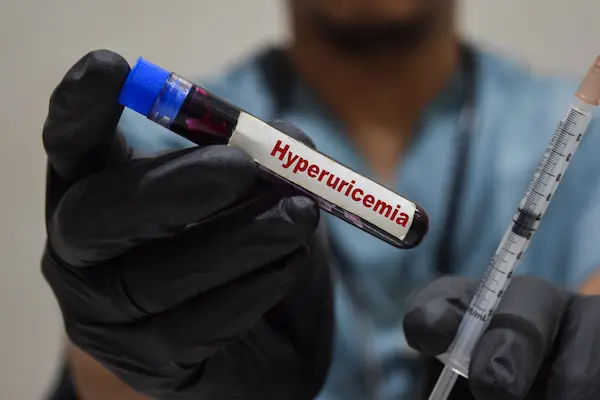Indian Diet Guidelines Post Kidney Transplant
Explore Indian diet guidelines after a kidney transplant, including protein intake, fluid balance, immunity-boosting foods, and meal tips to support long-term kidney health.

Written by Dr. Rohinipriyanka Pondugula
Reviewed by Dr. Shaik Abdul Kalam MD (Physician)
Last updated on 13th Jan, 2026

Undergoing a kidney transplant is a life-changing event, and proper nutrition plays a crucial role in ensuring a smooth recovery and long-term health. After a kidney transplant, your body needs time to adjust, and your diet must support healing, prevent complications, and maintain overall well-being. This guide will help you understand the dietary changes needed after a kidney transplant, focusing on Indian food choices that are both nutritious and kidney-friendly.
Why Is Diet Important After a Kidney Transplant?
After a kidney transplant, your body is adjusting to a new organ, and immunosuppressant medications (anti-rejection drugs) are essential to prevent organ rejection. However, these medications can affect your metabolism, blood sugar, blood pressure, and cholesterol levels. A well-balanced diet helps:
- Promote healing after surgery.
- Maintain a healthy weight (some medications may cause weight gain).
- Control blood sugar, blood pressure, and cholesterol (which can be affected by medications).
- Protect your new kidney by avoiding excess protein, sodium, and unhealthy fats.
Consult Top Nephrologist
Key Dietary Guidelines After Kidney Transplant
Here are the key dietary guidelines after a kidney transplant, especially tailored to Indian dietary habits and lifestyle,
1. Protein: Support Healing Without Overloading the Kidney
Protein plays a major role and here are few more details,
Why?
Protein helps repair tissues after surgery, but too much can strain your new kidney.
What to eat?
Lean proteins like skinless chicken, fish, eggs, and low-fat dairy (paneer, curd, buttermilk). Plant-based proteins like tofu, dal (moong, masoor), and sprouts (in moderation).
What to avoid?
Excessive red meat, processed meats (sausages, bacon), and high-protein supplements.
2. Carbohydrates: Choose Healthy, Fiber-Rich Options
Carbohydrates are the body’s main source of energy and here are few more details,
Why?
Some transplant medications can increase blood sugar levels, so choosing the right carbs is important.
What to eat?
Whole grains like brown rice, whole wheat roti, oats, quinoa, and millets (ragi, jowar, bajra). Fiber-rich foods like vegetables, fruits (in moderation), and legumes (soaked and cooked well).
What to avoid?
Refined carbs like white bread, maida products, sugary snacks, and sweets.
3. Fats: Focus on Heart-Healthy Options
Fats are essential for energy, hormone production, and nutrient absorption. Below are few more details,
Why?
Some medications can increase cholesterol levels, raising the risk of heart disease.
What to eat?
Healthy fats like olive oil, mustard oil, nuts (almonds, walnuts), and seeds (flaxseeds, chia seeds). Omega-3-rich foods like fish (salmon, sardines) and flaxseeds.
What to avoid?
Trans fats (found in fried foods, packaged snacks) and excessive ghee/butter.
4. Sodium: Keep Blood Pressure in Check
After a kidney transplant, controlling sodium (salt) intake is crucial and below are few more details regarding sodium intake,
Why?
Too much salt can raise blood pressure, which is harmful to your new kidney.
What to eat?
Freshly cooked meals with minimal salt. Herbs and spices (turmeric, cumin, coriander, ginger, garlic) for flavor instead of salt.
What to avoid?
Processed foods (pickles, papad, chips, canned soups, sauces). Restaurant/takeout food (often high in salt).
5. Potassium & Phosphorus: Monitor Intake
After a kidney transplant, the new kidney generally improves the body's ability to manage potassium and phosphorus. However, some patients may still need to control these nutrients,
Why?
Some medications can alter potassium and phosphorus levels.
Potassium (if levels are high):
- Limit: Bananas, oranges, potatoes, tomatoes, coconut water.
- Choose: Apples, guava, cucumber, cabbage.
- Phosphorus (if levels are high):
- Limit: Dairy, nuts, colas, processed meats.
- Choose: Fresh fruits, vegetables, lean meats (in moderation).
6. Fluids: Stay Hydrated but Not Overloaded
Water intake plays a major role as they have direct impact on kidney function and here are few more details,
Why?
- Proper hydration helps kidney function, but excess fluid can cause swelling.
- Drink: 1.5–2 liters of water daily (unless advised otherwise).
- Avoid: Sugary drinks, excessive tea/coffee, alcohol.
Additional Tips for a Healthy Recovery
Here are a few additional tips for a healthy recovery,
- Eat small, frequent meals (4-5 times a day) to aid digestion.
- Wash fruits and vegetables thoroughly to avoid infections.
- Avoid raw or undercooked foods (sushi, half-boiled eggs) due to infection risks.
- Exercise regularly (walking, yoga) to maintain a healthy weight.
- Monitor blood sugar & blood pressure regularly.
Follow your doctor’s advice on supplements (Vitamin D, calcium if needed).
When to Consult a Doctor?
If you experience:
- Sudden weight gain/swelling
- High blood sugar or blood pressure
- Loss of appetite or digestive issues
- Unusual fatigue or weakness
If you need expert advice, Apollo 24|7 offers consultations with kidney specialists and dietitians to help you create a customized meal plan.
Conclusion
A kidney transplant is a new lease on life, and a well-planned diet can help you stay healthy for years to come. By choosing fresh, balanced meals and avoiding processed foods, you can protect your new kidney and enjoy a better quality of life.
Consult Top Nephrologist
Consult Top Nephrologist

Dr. Ramalinga Reddy
General Physician
5 Years • MBBS MD General medicine
Bengaluru
PRESTIGE SHANTHINIKETAN - SOCIETY CLINIC, Bengaluru
Dt. Ila Sharma
Clinical Nutritionist
18 Years • Master in food & Nutrition
Gurugram
VIPUL GREENS - SOCIETY CLINIC, Gurugram
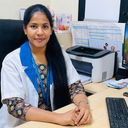
Dt. Prabhavathy
Clinical Nutritionist
8 Years • Msc Human Nutrition & Nutraceuticals
Madurai
Apollo Sugar Clinics, Madurai, Madurai
Ms. Bhavana Shetty
Dietician
7 Years • DDHN & Masters in Clinical Nutrition & Dietetics
Bangalore
Apollo Sugar Clinic, Seetha circle bangalore, Bangalore
Dr Sumanth R
General Physician
2 Years • MBBS
Bengaluru
PRESTIGE SHANTHINIKETAN - SOCIETY CLINIC, Bengaluru
Consult Top Nephrologist

Dr. Ramalinga Reddy
General Physician
5 Years • MBBS MD General medicine
Bengaluru
PRESTIGE SHANTHINIKETAN - SOCIETY CLINIC, Bengaluru
Dt. Ila Sharma
Clinical Nutritionist
18 Years • Master in food & Nutrition
Gurugram
VIPUL GREENS - SOCIETY CLINIC, Gurugram

Dt. Prabhavathy
Clinical Nutritionist
8 Years • Msc Human Nutrition & Nutraceuticals
Madurai
Apollo Sugar Clinics, Madurai, Madurai
Ms. Bhavana Shetty
Dietician
7 Years • DDHN & Masters in Clinical Nutrition & Dietetics
Bangalore
Apollo Sugar Clinic, Seetha circle bangalore, Bangalore
Dr Sumanth R
General Physician
2 Years • MBBS
Bengaluru
PRESTIGE SHANTHINIKETAN - SOCIETY CLINIC, Bengaluru

